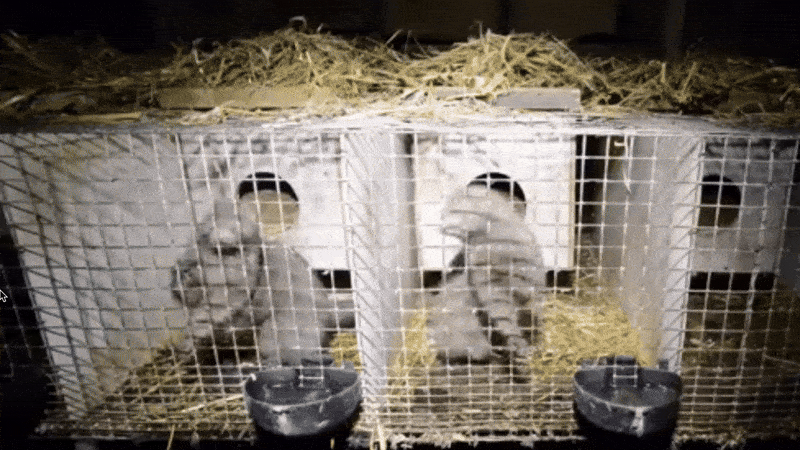Animal Justice has launched a formal complaint with Manitoba’s Ombudsman, an independent official tasked with investigating public complaints, following Manitoba Agriculture’s refusal to release basic information about mink farms in the province.
The request sought business names, addresses, the maximum capacity of animals at the farms, and the number of animals actually kept at these facilities. Manitoba Agriculture denied the request, claiming it was an unreasonable invasion of a third party’s privacy and could harm business interests. On the contrary, Animal Justice lawyers say that transparency about this secretive industry is critical for an informed public dialogue.
Well-Documented Cruelty on Mink Farms
Time and time again, immense suffering is documented on Canadian mink farms. In 2014, a joint investigation by the Montreal SPCA and The Fur-Bearers revealed devastating conditions at a farm—animals living in their own excrement inside tiny cages, repetitive behaviors indicating psychological distress, cannibalization, and severe, untreated injuries. A 2018 exposé at an Ontario fur farm found similar conditions—including open, untreated wounds and infections, piles of dead bodies, and spoiled food.

Though minks are semi-aquatic animals, meaning that they have a biological need to swim in appropriate water, they never get an opportunity to swim on commercial fur farms.
Mink Farming and Pandemic Risk
Experts warn that mink, likely more than any other farmed species, pose a risk for the emergence of outbreaks and the evolution of future pandemics. There were at least three COVID-19 outbreaks on Canadian mink farms and, more recently, mammal-to-mammal transmission of avian flu at mink farms in Europe. These risks led British Columbia to ban mink farming in 2021, and dozens of countries worldwide have similar bans in place.
Federal data suggests there are three mink farms in Manitoba killing more than 25,000 animals annually, but there is little else known about the industry in that province. Animal Justice is deeply concerned about this withholding of basic information, and urges the Ombudsman to recommend that Manitoba Agriculture disclose the requested information in the interest of public health, environmental protection, and animal welfare.
Banner: Jo-Anne McArthur | #MakeFurHistory | We Animals Media
